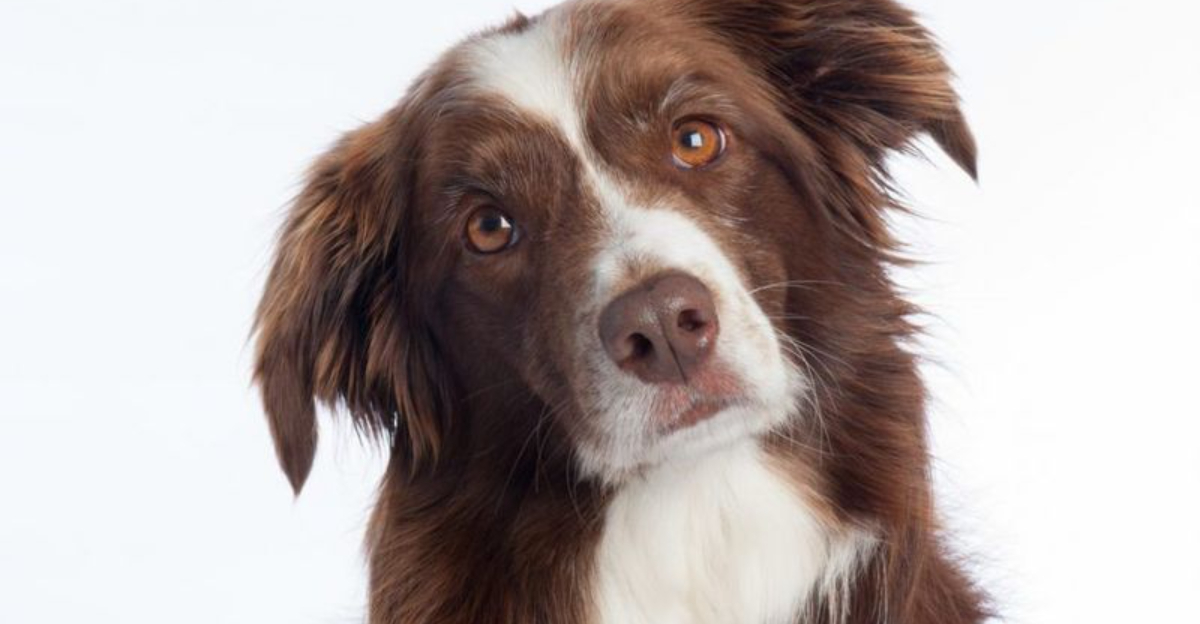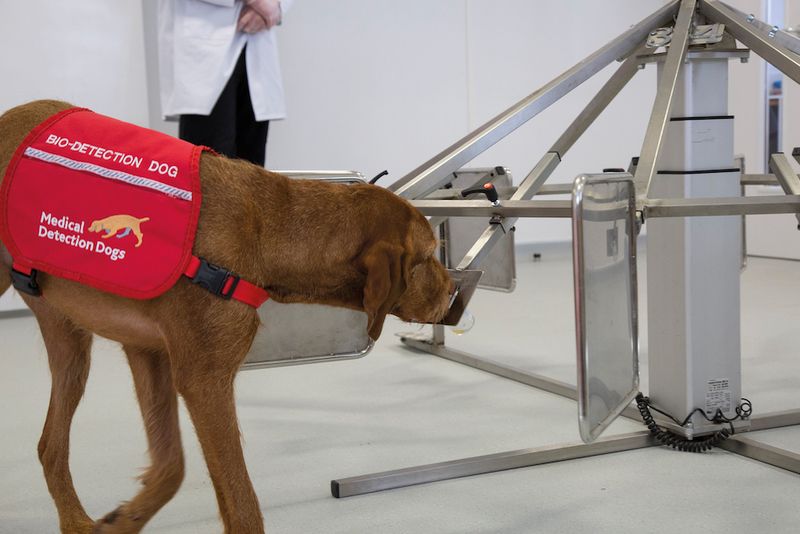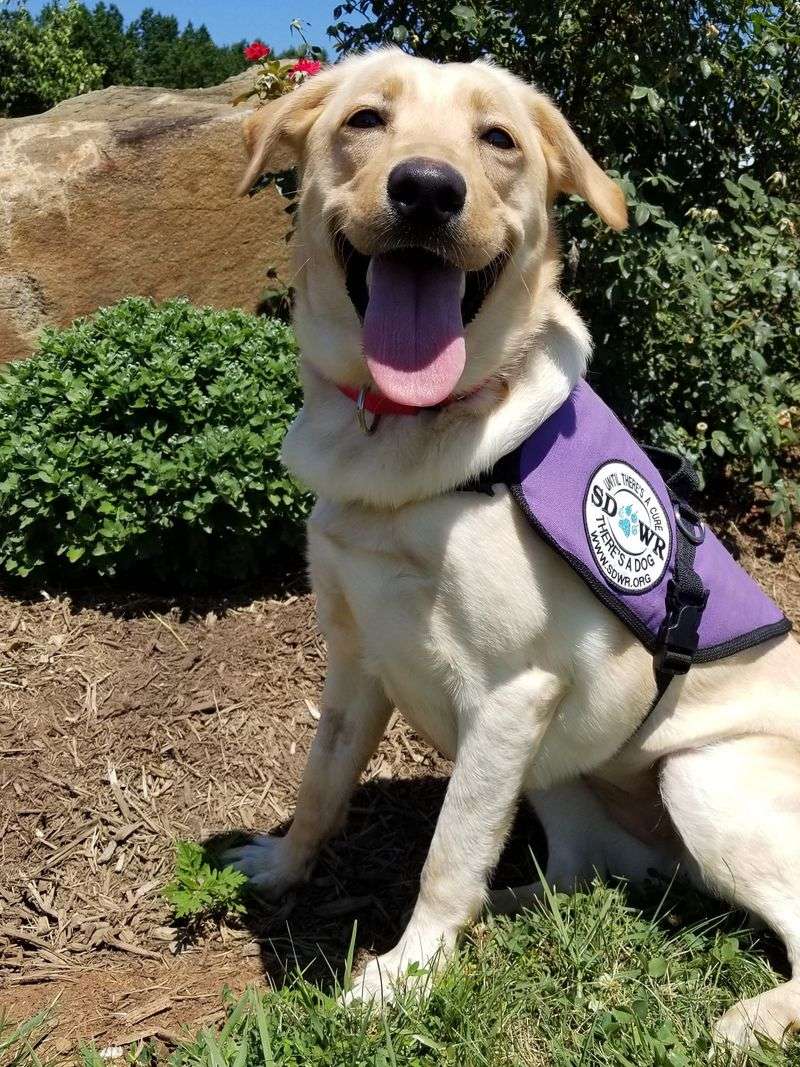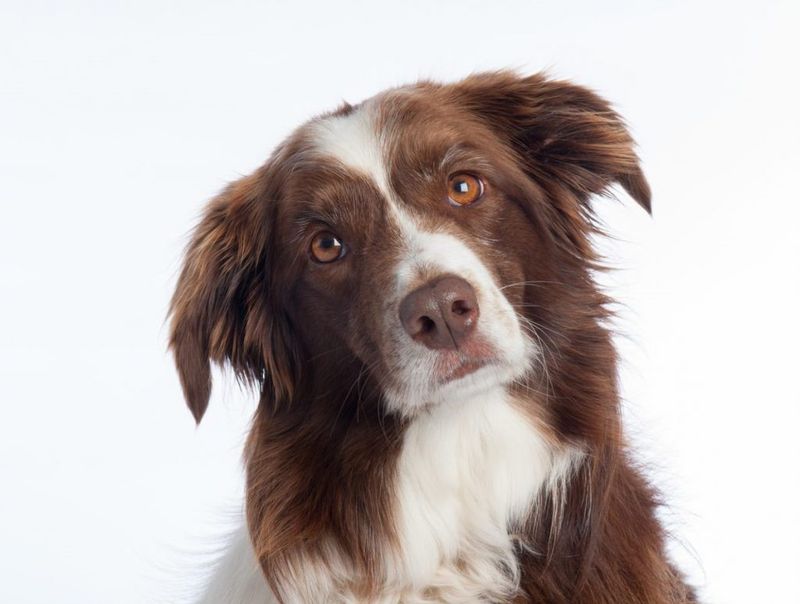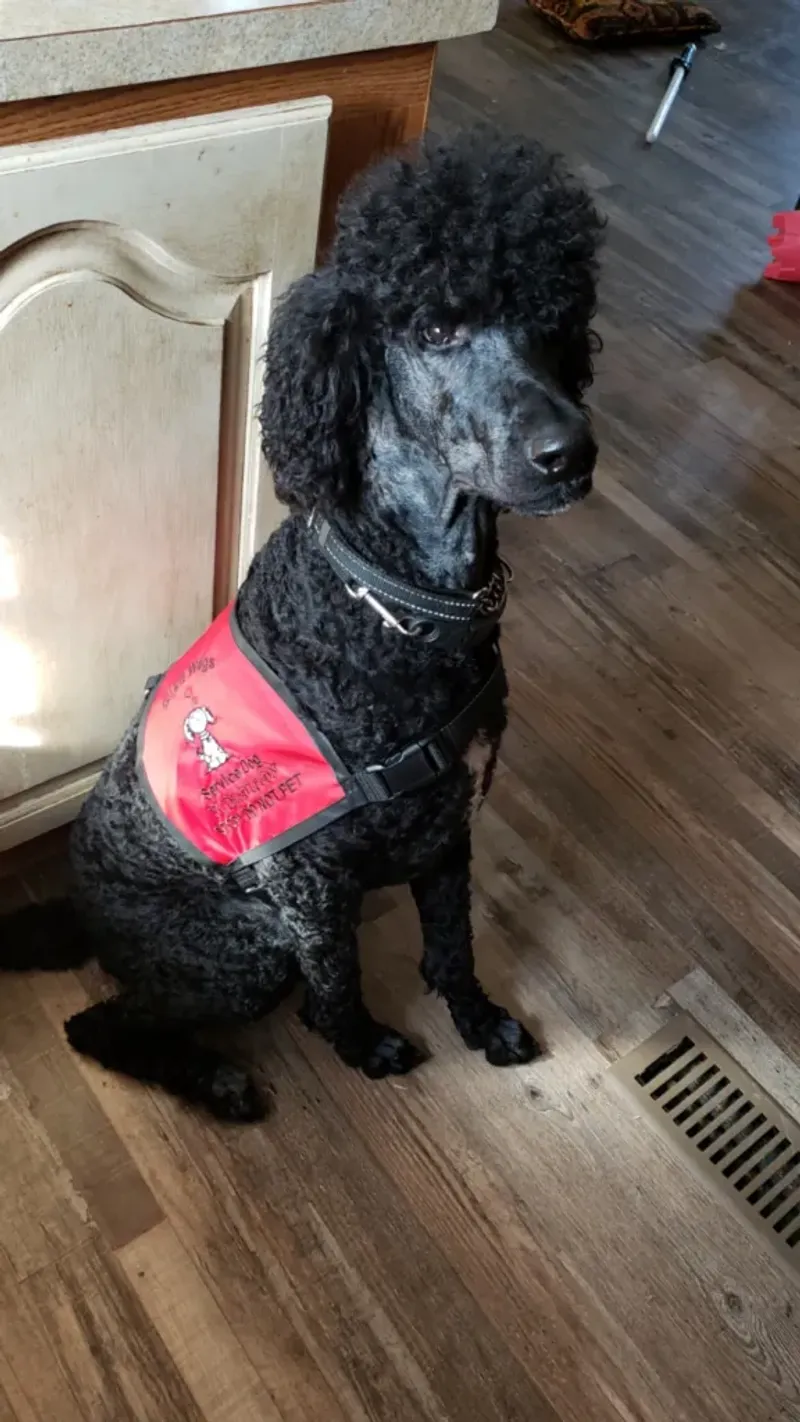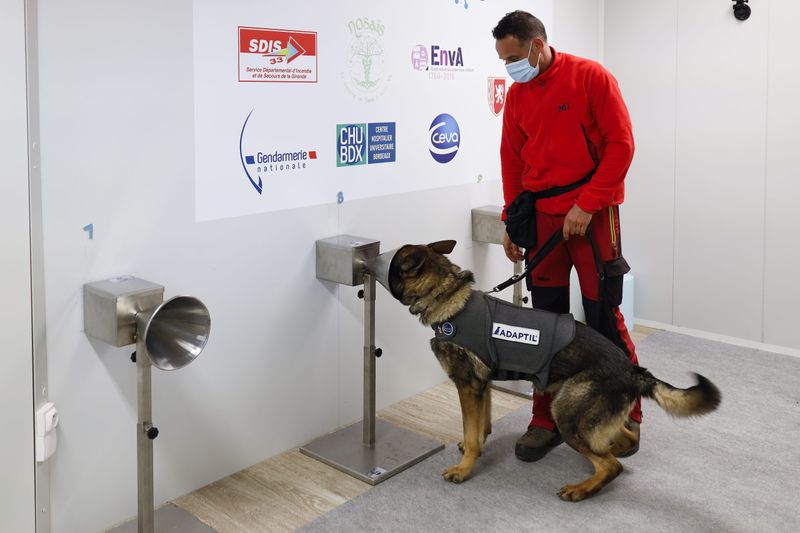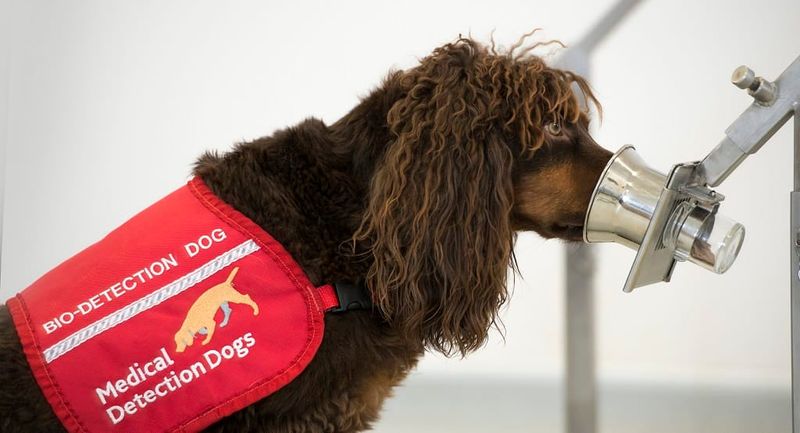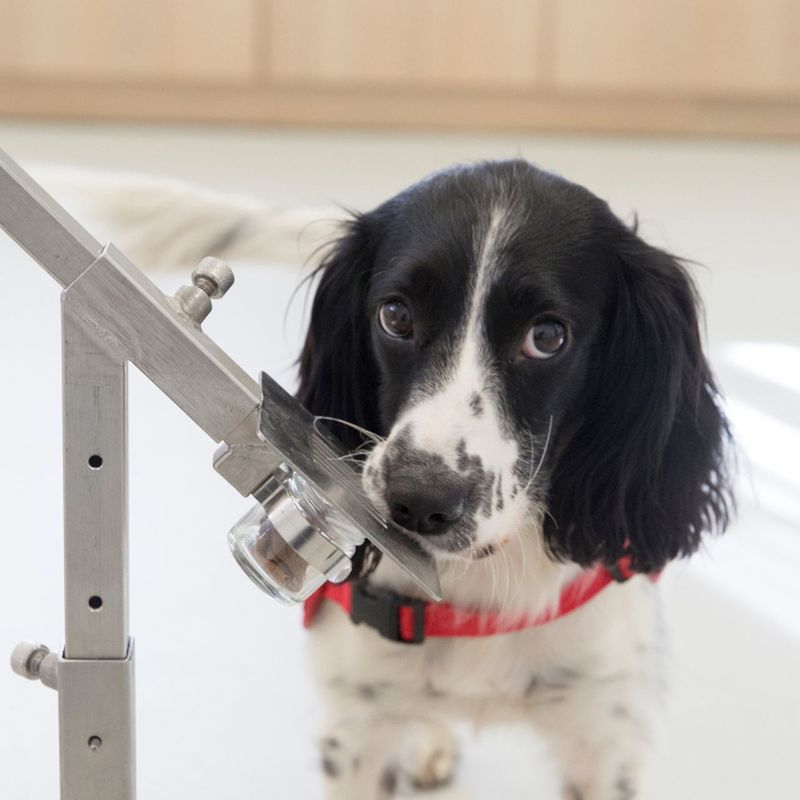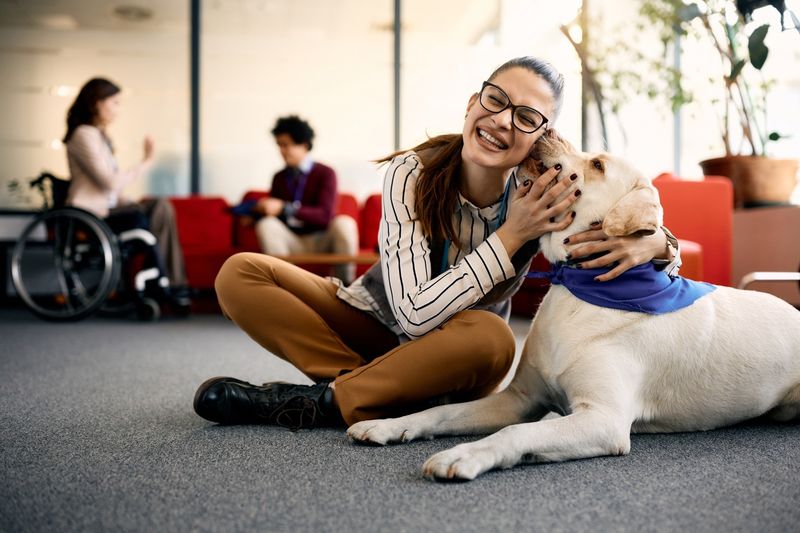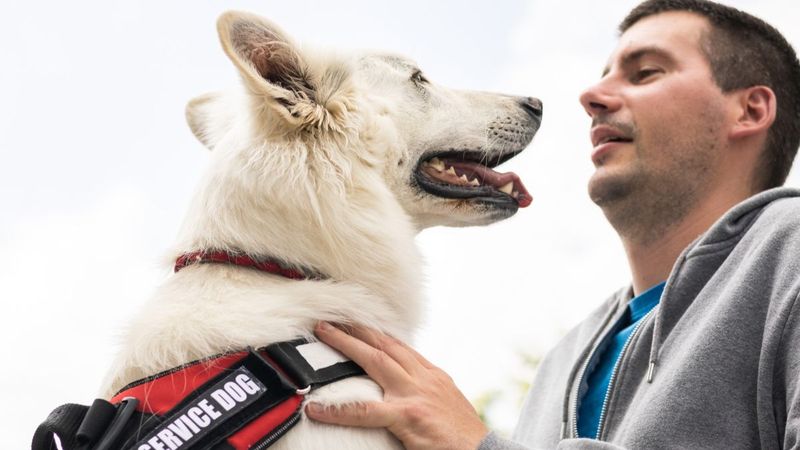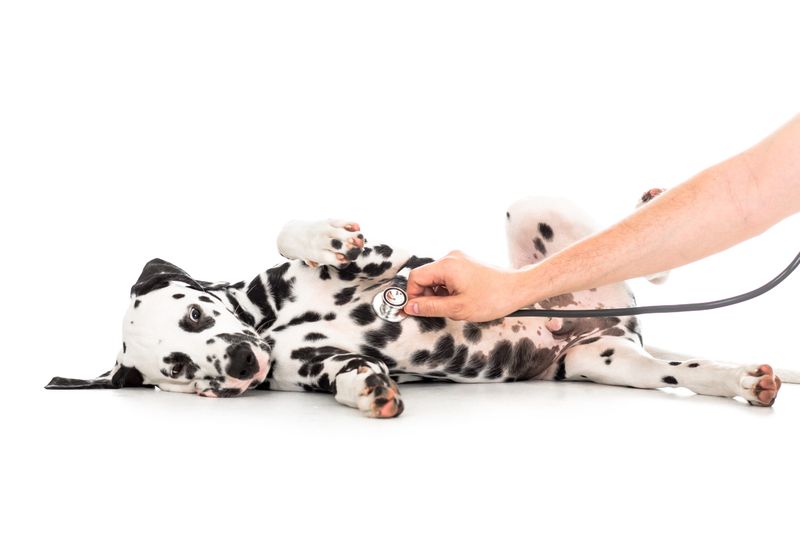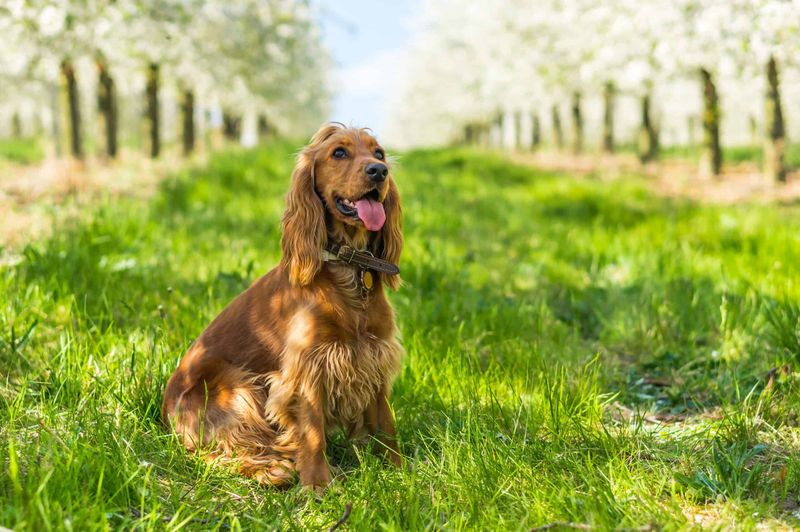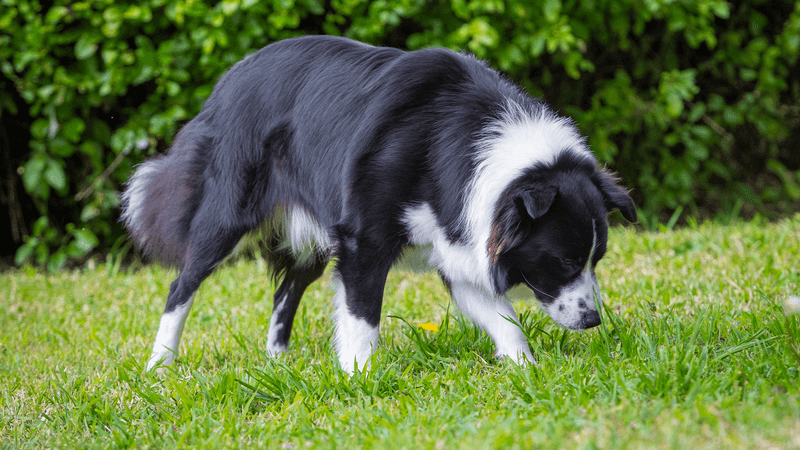Dogs possess an extraordinary sense of smell that enables them to detect various diseases and conditions in humans. This blog explores 17 fascinating instances where our four-legged friends sniff out health issues, providing an insightful look into the world of canine detection.
Cancer Detection
A Golden Retriever named Daisy has been credited with saving numerous lives by detecting cancer through scent. Dogs have an astonishing ability to smell volatile organic compounds emitted by cancerous cells. In research settings, they have successfully identified conditions like breast, prostate, and lung cancer.
The precision with which dogs can detect cancer signs is remarkable. Their olfactory prowess is due to having up to 300 million smell receptors, compared to a human’s mere 5 million. This makes them invaluable assistants in early diagnosis and monitoring. Who wouldn’t want a furry oncologist on their team?
Diabetes Alert
Meet the Labrador Retriever, a vital companion for people with diabetes. These dogs are trained to detect changes in blood sugar levels by sensing chemical changes in sweat.
With their unwavering attention and loyalty, they alert their owners to hypoglycemia or hyperglycemia, often before devices can. Such early alerts help prevent dangerous situations and promote peace of mind. Whether it’s a gentle nudge or a persistent paw, their signals are unmistakable. Truly, these Labradors are life-saving sentinels.
Seizure Prediction
The intuitive Border Collie is known for its ability to predict seizures in humans. These keen-eyed canines pick up on subtle body changes or scents before a seizure occurs.
They often signal the onset of an episode by barking, whining, or alerting a family member, giving their owners precious time to prepare or find a safe place. This gift of foresight not only provides physical safety but also emotional reassurance. A true testament to the deep bond between humans and their canine companions.
Narcolepsy Detection
The Beagle, with its curious nose, has been found to detect narcolepsy symptoms in individuals. They are sensitive to changes in body chemistry and can alert their owners to impending sleep episodes.
By providing a timely warning, these alert companions help manage narcolepsy’s unpredictable nature. Such dogs are indispensable for individuals seeking to maintain normalcy in their daily lives. Their role in providing this type of support highlights the diverse capabilities of sniffers on four legs.
Migraine Warning
Poodles, known for their intelligence and sensitivity, can alert owners to migraines before they happen. They detect changes in smell or behavior that indicate a migraine is approaching.
Alerting their owners allows preparation and potential mitigation of symptoms. This foresight is especially valuable for those who suffer from severe, debilitating migraines. The companionship of a Poodle not only soothes but also empowers their owners to face challenges with confidence.
Infectious Disease Detection
German Shepherds have been trained to detect various infectious diseases, including COVID-19. Their acute sense of smell allows them to identify specific pathogens in humans.
In pandemic times, their ability to screen individuals rapidly and accurately has proven invaluable. They serve as frontline protectors in public health, demonstrating the profound ways canines contribute to human safety. Their presence is both a reassurance and a marvel of nature’s ingenuity.
Parkinson’s Disease Detection
Spaniels have shown the ability to detect Parkinson’s disease through scent long before symptoms are visible. They pick up on subtle changes in body odor linked to the disease.
This ability provides an early warning system, enabling earlier intervention and management. The sense of security a Spaniel provides with its intuitive abilities is unmatched, offering hope and comfort to those diagnosed.
Malaria Detection
In research settings, African dogs have been trained to detect malaria with high accuracy. These dogs recognize unique chemical markers linked to the disease.
Their work in malaria-stricken areas provides a rapid, non-invasive diagnostic method that can reach communities lacking medical infrastructure. Their role is not just as companions but as essential health workers in the fight against infectious diseases.
Stress and Anxiety Detection
Therapy dogs are adept at sensing stress and anxiety, offering comfort to those in need. Their presence alone can reduce cortisol levels and promote relaxation.
By picking up on subtle cues, they provide companionship and a calming influence during stressful times. Whether it’s a busy college campus or a bustling office, their supportive role is invaluable. These gentle souls bring peace and comfort wherever they go.
Post-Traumatic Stress Disorder (PTSD) Detection
Service dogs are trained to assist veterans and others with PTSD by recognizing subtle signs of distress. They provide comfort and prevent escalation of symptoms through tactile grounding techniques.
These loyal companions offer a sense of security and stability, making it easier for individuals to navigate public spaces and social situations. Their role in recovery and daily life is transformative, exemplifying the healing power of human-canine partnerships.
Low Blood Pressure Alert
Dalmatians have been noted for their ability to alert owners to low blood pressure episodes. They sense changes in their owner’s scent or behavior, providing an early warning system.
This alert system helps manage symptoms proactively, avoiding potential complications. Owning such a perceptive companion brings peace of mind, knowing that a loving watchdog is always on duty. Their presence is both a comfort and a safeguard.
Allergy Detection
Cocker Spaniels can be trained to detect allergens like peanuts or gluten, offering safety for individuals with severe allergies. Their acute sense of smell allows them to identify minute traces of allergens in the environment.
This ability is crucial for children and adults alike, preventing allergic reactions and allowing them to participate in social activities without fear. Their vigilance is a literal lifesaver, ensuring that allergies don’t hold anyone back from enjoying life.
Depression Detection
Mixed breed dogs, often found in therapy roles, can detect signs of depression in humans. Their sensitivity to emotional changes means they offer companionship and support during difficult times.
Their empathetic nature allows them to sense when someone is struggling, providing comfort through presence and affection. These dogs highlight the unspoken bond between humans and animals, offering hope and healing with their unwavering support.
Thyroid Disease Detection
Jack Russell Terriers have been noted for their ability to detect thyroid issues through scent. They sense changes in hormonal balance, providing early detection of conditions like hypothyroidism.
This ability aids in timely diagnosis and treatment, allowing individuals to manage their health more effectively. The presence of such an astute companion is a boon, offering another layer of insight into one’s well-being.
Chronic Fatigue Syndrome Detection
Schnauzers, known for their alertness, can detect signs of chronic fatigue syndrome. They perceive changes in body chemistry and behavior, alerting their owners to potential flare-ups.
These timely alerts help manage energy levels and plan activities to avoid overexertion. The companionship of a Schnauzer brings reassurance, allowing individuals to live more balanced lives despite their condition. Their role as a vigilant friend is both cherished and essential.
Bacterial Infections Detection
Bloodhounds, with their legendary sense of smell, can detect bacterial infections. They identify specific bacteria in samples, assisting in swift diagnosis and treatment.
Their accuracy and ability to work in medical environments make them valuable assets in healthcare. The partnership of a Bloodhound brings both precision and a touch of canine charm to the medical field.
Hormonal Changes Detection
Collies have been observed to detect hormonal changes, such as those occurring in pregnancy. They pick up on subtle shifts in scent and behavior, offering support and companionship.
This ability to sense such changes adds an extra layer of connection and support for expectant mothers. The presence of a Collie during this time provides emotional comfort and assurance, making them treasured partners.
